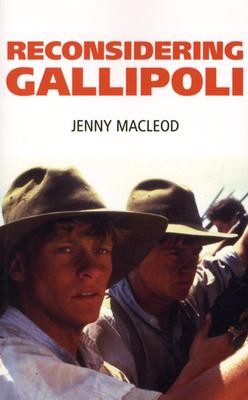
- We will send in 10–14 business days.
- Author: Jenny Macleod
- Publisher: Manchester University Press
- ISBN-10: 071906743X
- ISBN-13: 9780719067433
- Format: 13.7 x 21.5 x 2.1 cm, softcover
- Language: English
- SAVE -10% with code: EXTRA
Reviews
Description
The British cultural history of the Gallipoli campaign has been overlooked until now - this is a significant book as it offers the first real opportunity for this important campaign to be included in undergraduate courses on WWI. The commemoration of war is a particularly vibrant area of study - Anzac Day, commemorating the landings that began the Gallipoli campaign, is central to Australian national consciousness and this book examines why. A crucial argument in the cultural history of the First World War was sparked by Paul Fussell's contention that the war signified a profound cultural rupture; in widening the debate from the Western Front, this book supports the counter argument that romantic modes of expression retained resonance and utility. In Australia, the renewal of the story of Gallipoli by historians and film-makers (notably Peter Weir's 1981 film starring Mel Gibson) has profoundly altered the national sense of identity and society's perceptions of the armed forces;
the authors explains how the writing of this particular event has developed and achieved this central position. An essential volume for those interested in British military and Australian history, postcolonialism and nation building, from academics and students through to the general reader.
EXTRA 10 % discount with code: EXTRA
The promotion ends in 16d.14:00:41
The discount code is valid when purchasing from 10 €. Discounts do not stack.
- Author: Jenny Macleod
- Publisher: Manchester University Press
- ISBN-10: 071906743X
- ISBN-13: 9780719067433
- Format: 13.7 x 21.5 x 2.1 cm, softcover
- Language: English English
The British cultural history of the Gallipoli campaign has been overlooked until now - this is a significant book as it offers the first real opportunity for this important campaign to be included in undergraduate courses on WWI. The commemoration of war is a particularly vibrant area of study - Anzac Day, commemorating the landings that began the Gallipoli campaign, is central to Australian national consciousness and this book examines why. A crucial argument in the cultural history of the First World War was sparked by Paul Fussell's contention that the war signified a profound cultural rupture; in widening the debate from the Western Front, this book supports the counter argument that romantic modes of expression retained resonance and utility. In Australia, the renewal of the story of Gallipoli by historians and film-makers (notably Peter Weir's 1981 film starring Mel Gibson) has profoundly altered the national sense of identity and society's perceptions of the armed forces;
the authors explains how the writing of this particular event has developed and achieved this central position. An essential volume for those interested in British military and Australian history, postcolonialism and nation building, from academics and students through to the general reader.


Reviews